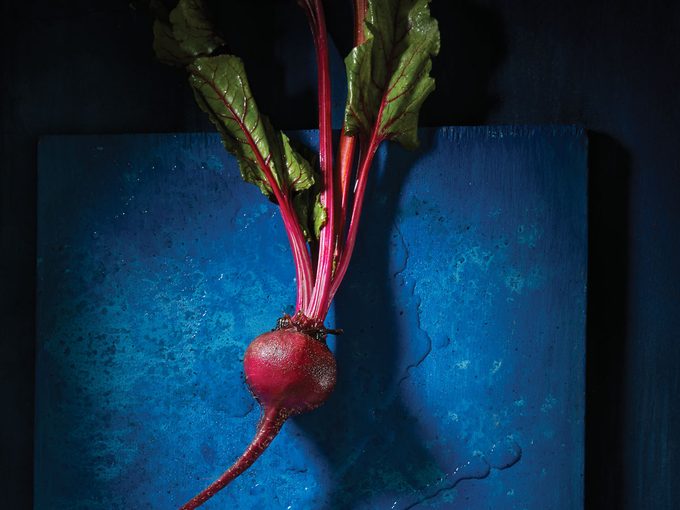Beet Greens May Just Replace Kale As The Next Nutritional Powerhouse
Instead of focusing on the bulb, turn your culinary thoughts to the leaves and stems.

What are beet greens?
Oh, beet greens. Once relegated to the garbage bin after their sweet ruby root veggies have been harvested, these leaves and stems are now replacing kale as the green du jour. With their dark leaves, crimson red veins and rich purple stems, beet greens are as pretty as they are versatile. They’re also more nutrient-dense than their roots.
Loaded with nutrients
Beet greens are loaded with carotenoid antioxidants, and research suggests that getting your fix may help reduce your risk of cataracts and eye disease. One cup of cooked beet greens also provides more than 700 percent of your daily requirements of vitamin K, 24 percent of your magnesium and 16 percent of your calcium. These three nutrients are important for supporting strong bones and teeth.
Help support brain health
The dark, leafy green foliage of beets may also help support a healthy brain. One study found that consuming a single daily serving of these leaves may help slow cognitive decline with age. And let’s not forget about your heart: Research suggests that eating your greens, with all that vitamin K and half of your daily vitamin C needs, may help reduce your risk of cardiovascular disease. Read on to find out the truth about these seven common heart disease myths.
Want to start cooking with beet greens? Check out this Tahini Beet Green Bowl and Beet Green Pesto Linguine recipe.




